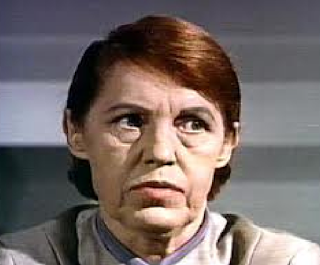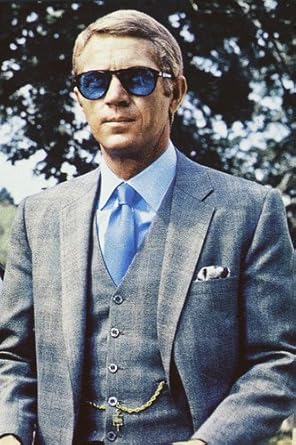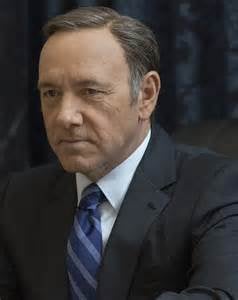If you're writing a crime or mystery story, the villain drives your plot. Without a strong opponent, your hero looks weak because he or she doesn't really face a challenge. That's bad.
So how do you make your villain strong?
Remember, your Bad Guy explores alternatives, stepping over the line into the darkness to get something he or she wants, by whatever means necessary. If those means include lying, stealing, or killing, so much the better. The villain's goal is usually money, love, or power, and those are the issues that give your story high stakes. Without stakes, who cares?
The more your villain influences the story, the better. The hero/sleuth has to meet the increasingly difficult challenges.
That's comparatively easy in suspense novels that use the Bad Guy's point of view for some scenes. Suspense stories seem to be getting bigger and bigger now, and Armageddon needs a full-scale Ming the Merciless (Yeah, I'm dating myself)
to carry the ball. Sometimes those stories present the Bad Guy as a monster. Don't TELL us your character is a monster, though, a Joker, Snidely Whiplash, or Hannibal Lector, SHOW us. He has to be willing to kill dozens of people, dance with glee over starving kittens and scheme to bring back Disco.
He doesn't have to wring his hands and cackle "Bwah-hah-hah, my pretty" whenever we see him, and he doesn't need a pet cobra or a bullwhip. But we like to see someone enjoy his work and take pride in it. My favorite line in the entire Batman series is Heath Ledger as the Joker proclaiming, "When you're very good at something, never do it for free."
The best Bad Guys have redeeming qualities, too. They have a good reason (to them) for what they do. Revenge for a dead sibling or child, pursuit of a cause they believe is noble, a cure for tone-deafness. And except for some bloodthirsty little peccadillo, they may be great people. Hannibal Lector has superb taste and a sense of humor. In the early James Bond films, Blofeld often cradled a white Persian cat. If he likes animals, how bad can e really be? Well, come to think of it...
That's suspense. In mysteries, we can't be that obvious. We want the reader to wonder who the Bad Guy is. My villains seem like ordinary people until we discover why they do those nasty things. But my Bad Guys (or gals, I have several of them--I love subtle femme fatales) keep the squirrel running on the treadmill.
In Who Wrote the Book of Death? Zach Barnes is trying to find the person who threatens Beth Shepard.
Beth is the visible half of a writing team, and Barnes isn't sure if she's the target or if the Bad Guy really wants to kill Jim Leslie, who writes under a female pen name. He spends lots of time looking at both peoples' backstory to see who might want to kill them. In the meantime, Leslie nearly gets electrocuted in his own home. The killer tampers with the wiring, but nobody sees him. Beth is almost run down, but nobody gets a good look at the car. Later, someone shoots at her while she's presenting an author event at a bookstore, and nobody sees the shooter.
The villain is hiding, but his work drives the story. Even though we haven't seen him, Barnes must scramble to protect both people and figure out who the heck is doing all this stuff.
In The Whammer Jammers, several characters have nasty agendas. Someone stalks a roller derby skater, someone plans a bank robbery, and someone sets fires to a geriatric hospital, but we don't know who is pulling all the strings until Trash and Byrne solve those cases and find the common denominator...in the very last scene.
Blood On the Tracks revolves around a cold case that comes to light when Woody Guthrie agrees to recover a missing audio tape of a 1991 recording session. Someone killed a man to steal that tape, and Guthrie has to figure out why a recording of a long-forgotten band matters that much. The tape is what Alfred Hitchcock used to call a "MacGuffin," the gizmo that drives the plot, but the killer and his reasons are real. Guthrie has to understand how a twenty-years-old death links to three violent deaths in the present. That's a lot of influence by an invisible Bad Guy.
I put all these villains in plain sight and have them behave like decent people because I want to play fair with the reader. I give him or her information to unravel the mystery along with my detective, but I don't make my villain a weirdo or a demon or a cartoon. He or she is simply a person like you or me (But not as handsome or beautiful)
Unfortunately, opening the morning newspaper reminds me that we have enough monsters out there in real life.















